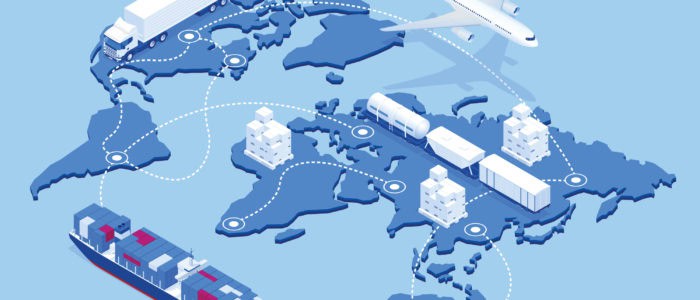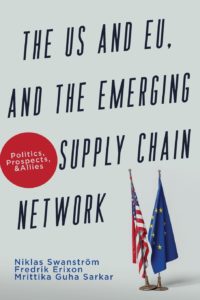Published
New Book: The US and EU, and the Emerging Supply Chain Network: Politics, Prospects and Allies
By: Fredrik Erixon
Subjects: European Union Far-East North-America Regions WTO and Globalisation

In a new book , Niklas Swanström, Fredrik Erixon and Mrittika Huha Sarkar take a deeper look at key geoeconomics issues and ask what the US and the EU can do to improve economic security in a world economy dependent on deep global supply chains. With new technological developments and geopolitical shifts, it is crucial for the US and the EU to understand economic threats and manage them competently. It is equally crucial that they keep markets open and deepen economic collaboration between each other, and with friends and allies.
, Niklas Swanström, Fredrik Erixon and Mrittika Huha Sarkar take a deeper look at key geoeconomics issues and ask what the US and the EU can do to improve economic security in a world economy dependent on deep global supply chains. With new technological developments and geopolitical shifts, it is crucial for the US and the EU to understand economic threats and manage them competently. It is equally crucial that they keep markets open and deepen economic collaboration between each other, and with friends and allies.
Western economies are increasingly intertwined with sectors of the Chinese economy, fueled by heavy Chinese investment in labor and R&D infrastructure. The growing gravitational pull of China’s economic orbit has diminished the influence of Western economies in fostering good governance and institutional norms. China’s expanding control over trading routes has also empowered it to act in ways that undermine the principles of open seas.
This book addresses the entangled issues of strategic dependency and economic vulnerability requiring a multifaceted policy response – for instance, the diversification of supply sources; investment in domestic capabilities; international cooperation to ensure a balanced and secure global economic landscape. The strategic recalibration involves reducing dependency on specific geopolitical actors and enhancing the resilience and flexibility of supply chains to bear future shocks. This includes, among other things, fostering innovation; incentivizing domestic industries critical for economic and national security; building alliances to counterbalance the influence of geopolitical rivals
The book can be ordered here.